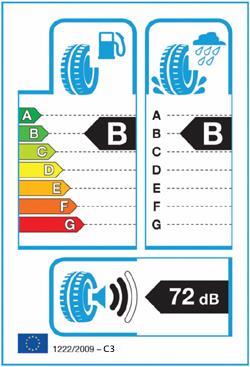
Proposals from the European Commission would require manufacturers of LGVs and other vehicles to meet new decibel sound levels once these are agreed by MEPs. The regulation will also require that buyers are provided with sound levels at the time of purchase. "The provision of information to fleet managers may influence the transition to a quieter vehicle fleet," says an EC spokesman.
The proposal was recently discussed by the European Parliament's Environment Committee."There would be anew testing method for measuring the sound level and new noise limit values for light, medium and heavy vehicles," says MEP Miroslav Ouzky, the rapporteur(sponsor) for the proposal., adding, "I recognise that vehicle noise has multiple sources including the engine, tyres, road surface and aerodynamic noise."
Ouzky believes there should be incentives for manufacturing and buying quieter vehicles as well as a noise emissions labelling scheme.
The EC proposes a phased reduction of noise emissions:
1. A reduction of 3dB (decibels) for heavy vehicles to take effect five years after the regulation comes into force. The limits will be lowered by 1dB in 2014 and 2dB in 2017. Noise levels per truck could then no longer exceed 78dB.
2. A reduction of 4dB for light and medium sized vehicles to take effect five years after the regulation comes into force. The limits will be lowered by 2dB by 2014 and a further 2dB by 2017. Noise levels per vehicle could then no longer exceed 68dB.
Opinions will be sought from other committees, including Transport, which discussed the issue last month. A vote in the full parliament takes place in October.
The EC compares the proposal to the type approval regulation which governs Euro 5 and Euro 6 engine emissions.It is assessing the possibility of attaching a road classification system to the new regulation. This would analyse the typical rolling sound on every road in the EU and member states would be required to provide information about road surface qualities.
If the regulation is approved period manufacturers have a couple of years grace before any changes are required. The question is how much more can be achieved by an industry that has refined its vehicles over the years to improve suspension, chassis and general build qualities? "We do everything we can to reduce the noise level of vehicles," says a spokesman for Mercedes Benz, "The new Actros range has a completely revised suspension which allows the unit to pass over the road surface in a smoother fashion. Modern trucks have come on in leaps and bounds and the industry has invested a fortune in technology. We can see the benefits of quieter vehicles, especially for those living by a busy road."
The issue is complicated by the numerous factors that contribute to the sound of a lorry passing along a street. "It’s often the body or trailer that makes the most noise," says a spokesman for Daf Trucks, "Rattling cages and slamming doors contribute while an empty tipper makes more noise than a laden one. The quality of tyres will make a difference."
"However, it is important that we reduce noise," adds the spokesman, "In Holland they are looking at hybrid vehicles that use diesel on the motorway and switch to electricity for deliveries in town. "
He says that porous road surfaces drain more quickly and reduce noise – sections of the M4 have adopted this approach. "It’s considerably quieter in wet weather."
In a nutshell
The EC wants to curb the noise levels of vehicles including cars, lights commercials, buses, vans, coaches and trucks.
Heavy vehicles would be limited to a maximum of 78dB with limits lowered by 1db in 2014 and 2dB in 2017.
Current noise levels are governed by Directive 70/157/EEC and 12 related directives.
The new proposal has gone before the European Parliament’s Environmental and Transport committees and faces a vote of the full parliament in October.













